“They were careless people, Tom and Daisy. They smashed up things and people, and then retreated back into their money and their vast carelessness.” – Nick Carraway
The movie ended on a sombre note like all great love stories do, just with a little contrast to the clichéd love tragedies – the hero dies alone. ‘Alone’ – the single most controversial term when it’s placed next to love. If you are alone – people in all probability presume you are not in love. If you are alone, you probably are trying to shield yourself from love or desperate to find love. Also if you are alone, you are probably waiting for love to come which is either long lost or the kind you wish to encounter.
Who’s Jay Gatsby?
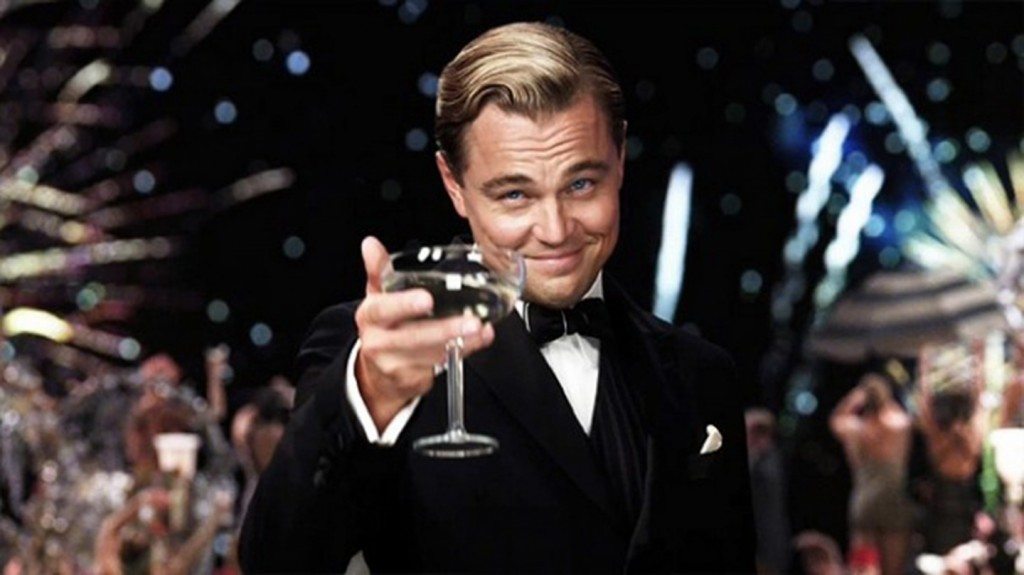
Jay Gatsby is a myth wrapped in mystery served in extravagance. He lives in a chateau, throws crazy parties and that’s a given that makes huge money. While everyone knows him, but no one really cares to know who he is. People come to his party uninvited, scavenges on his riches and leaves the dirty place and fashions false stories about him. People love the myths and legends and never makes an attempt to shatter the enigma associated with the name ‘Jay Gatsby’.
Great Gatsby depicts the constant clash between fantasy and reality. The fantasy of who Gatsby is and the ignorance of his reality. The fantasy Gatsby lived in and lived for and the reality that Daisy wanted to escape. The fantasy of love and reality of choice. Gatsby lived to believe that he was the son of God, destined for future glory. He lived under an illusion of inheriting huge property, but instead, he inherited the lifestyle of the elites which helped him to fool people and carve his way up to the ladder of affluence.
He achieved what he believed in and wanted more. He wanted Daisy Buchanan and would do everything to have her. He loved her to the extent of obsession that he could only see the green light at the end of the tunnel emitted from her home but could not see the darkness surrounding it or even looked back to see people who really cared for him. The ending of the movie illustrates how we are deluded by a fantasy that we fail to see past it and not accept the truth. We want a better future, or we cling to our past and not accept our present. We wait for the green light at the end of the tunnel not realising that we are building a palace of dreams where everything is unreal. When the rose-tinted veil of fantasy is removed from our eyes, we are scorched by the reality, and yet we stay in denial and disbelief.
People came to the party and enjoyed the fanfare and what mattered to them were the merriment and wealth. They did not bother themselves to know who their host was as long as they had free meals, fun and a platform to socialise. Anyone did not stay back to clean the mess or even try to invite him back or at the least show some gratitude. The entire city bustled at his parties, but when he died, he died alone. There was just Nick Carraway who looked beyond his money and vanity and Gatsby in his lifetime did not get a chance to value that friendship because he was hoodwinked by his obsession for Daisy.
Gatsby and Daisy
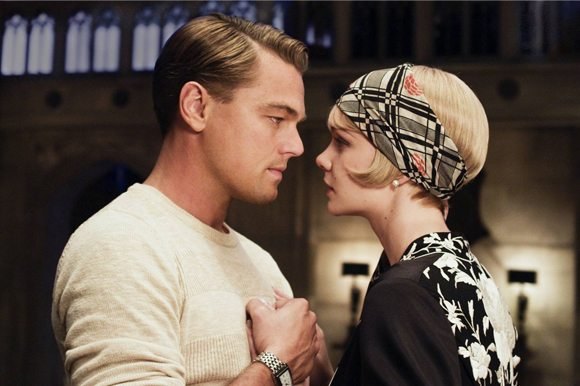
Daisy, on the other hand, was looking for a respite from his cheating husband, boring life and life lacking in romance. She wanted everything that Gatsby had to offer – The love, the wealth, the romance, the life like a vacation and attention (a lot of it). Gatsby looked at her in a way that every girl wanted to be looked at, and she blossomed under his touch. But this love was just confined between two people with surreal comforts of the mortal world and beyond. The book says, “There must have been moments even that afternoon when Daisy tumbled short of his dreams — not through her own fault, but because of the colossal vitality of his illusion” and the movie too depicts the same. Daisy desired the passion that Jay Gatsby offered. She enjoyed the jealousy that her husband was evidently experiencing. She felt validated and wanted. She wanted to feel like an object of desire after a long period of negligence. She enjoyed her husband’s envy towards Gatsby. But that was a brief spell. She did not want to live this life banked on illusions. She convinced herself that she was doing the right thing but still filled with self-doubts and fears. She was feeling the pressure of the world outside; on the other hand, Jay Gatsby shut himself out completely from the world to be with her.
Jay Gatsby was the single most positive person who just saw the green light. He knew Daisy belonged to him despite being married to Tom Buchanan. He believed that Daisy loved him and he lived for that. The truth was that Daisy did love him once and with time he left her mind and someone else resided in her heart no matter what her current love life seemed – that was the undeniable truth. That’s how the society worked. That’s how life worked, but that’s not how Jay Gatsby’s mind worked. He already believed what he had to, and there was nothing that could undo his belief. Even after Daisy’s confrontation about her love for Tom or her unwillingness to give up on her marriage or accepting her love for Jay, Jay stays positive and still believes that Daisy would call to reunite with him. Nick tries to speak sense into him, but he shuns out the reality and chooses the denial. He dies thinking that Daisy called, but he looks past the fact the only person who cared was his best friend (“old sport”), Nick. This reiterates the conflict between imagination and reality.
The Ending
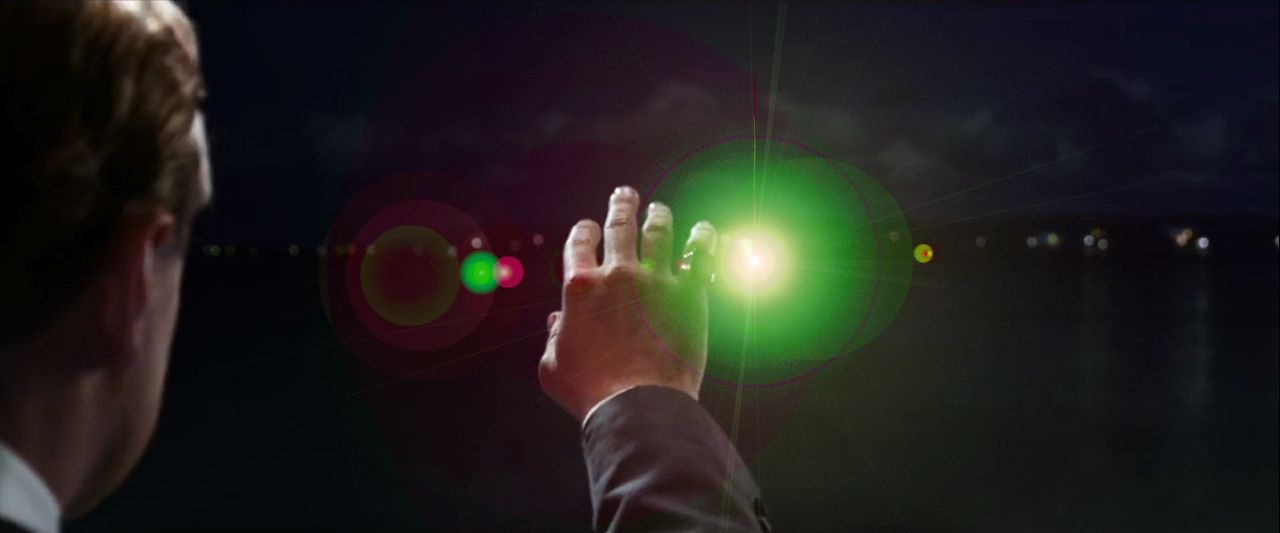
“So we beat on, boats against the current, borne back ceaselessly into the past.”
Gatsby dies blissfully with infinite hope which also leads us to believe that no matter who is on our side or what happens to us, we live clinging on to hope. It gives us immense pleasure and happiness to seek something that we desire and all our love we chase it relentlessly thinking it as our destination. We do miss on the little joys, but the joy of reaching the destination could never equate the same. Daisy was a destination to Gatsby rest everything was either vanity fair or Apollo ( the giant) to him. He did not believe in being distracted and knew exactly what to achieve. Daisy leads him on until the very end and leaves him to die. He did not believe in this failure and was content sticking to his make-believe world. He believed what he had to, oblivious of the reality, which made him die a happy man. Nick remains and comes in term with the reality that Daisy never called or send a flower at the news of his death. He saw that there was no one by his side when he died. Not one single person that came to his parties. Daisy moves on with her life and family leaving the ‘vacation’ behind, but Nick remains shocked at her insensitivity. He was taken aback by the reality that the person who lived and died for Daisy, did not deserve her reverence even in the last moments. The man who loved, validated and gave her everything she always wanted was dying alone, and she refused to take any calls. It was distressing, and it was the truth that Nick could not face.
Nick is the only character who witnesses the ebb and flow of the entire story and thereafter went on to write it out as a part of his therapy. He is depicted as the only unselfish and non-judgmental person in the movie. He witnesses the spree Tom Buchanan entertains. He also sees the love the Daisy craves and observes Gatsby’s passion for his sister. She tries to unite the lovers without asking anything in return, with the belief that they deserved each other. He is the only person who could see through the human Gatsby when others accepted the illusory version of him. He sticks to him until the very end. Though he is a very practical man yet his bond with Gatsby reiterates the core idea – Fantasy versus Reality. Also, despite being so well acquainted with how the ordinary world works he could not come in terms with the fact that people like Daisy and Tom could retreat back to normal lives despite destroying other people. Nick realises that chasing a dream ends up disrupting our lives because we fail to look through people who value us and who does n’t. By chasing a mirage, Gatsby ends up destroying himself, and Nick remains sole witness to it. Nick realises that he is the only one Jay Gatsby had and only one who cared and that broke him. His one beloved “ Golden Shimmering” New York now made him repulsive. He hated it and hated the “huge incoherent” house of Gatsby even more. It was no longer the make-believe world of illusion. It was a palace of broken dreams and a hardcore reality. The ugly one. The one he did not prepare himself for.
In the book Nick says (Which was even depicted in the film):
“And as I sat there brooding on the old, unknown world, I thought of Gatsby’s wonder when he first picked out the green light at the end of Daisy’s dock. He had come a long way to this blue lawn, and his dream must have seemed so close that he could hardly fail to grasp it. He did not know that it was already behind him, somewhere back in that vast obscurity beyond the city, where the dark fields of the republic rolled on under the night.
Gatsby believed in the green light, the orgastic future that year by year recedes before us. It eluded us then, but that’s no matter—tomorrow we will run faster, stretch out our arms farther. . . . And one fine morning—— “
He provides a deep insight into this universal truth. We believe in our desires so much that sometimes we forget to keep pace with the world around us. Banking on the fantasy seems more convenient living in reality. Nick was deeply affected by the in-sensitiveness and the inhumanity. He is traumatised to realise that it was that easy to flee the truth for some while it was everything for others. He ponders on the days that the palace would be filled with an unknown frenzy and made it look like an amusement park. The place was filled with party freaks, but not a single mourner turned up to pay reverence. The frugal mindset of people made him sick and thus the city that promised him dreams was no longer a favourite. He no longer wished to dream but lived to tell the story of a dreamer who was perished.
Final Word
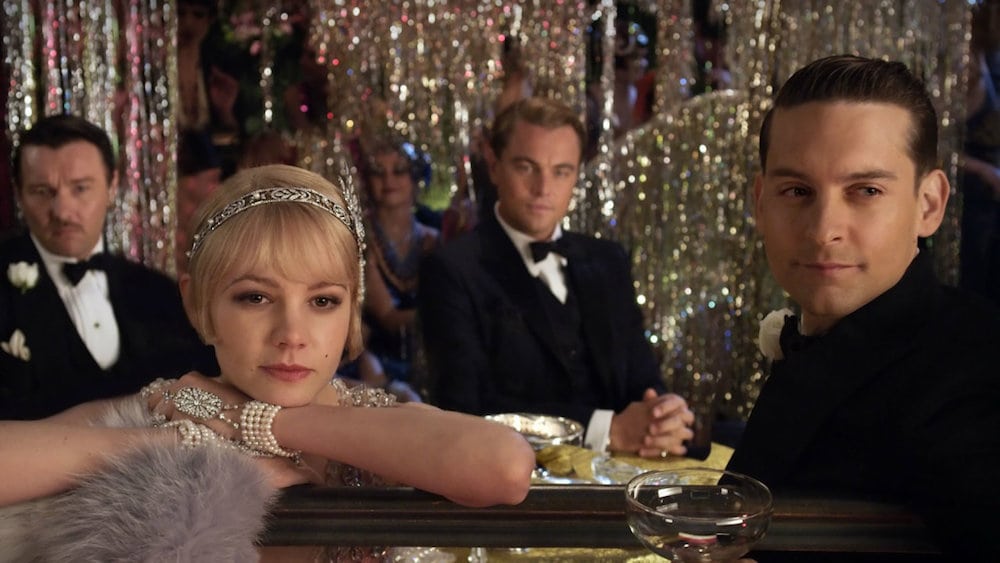
Jay Gatsby was great because he was imperfect, unreal and full of passion. That is the kind of person we hope for, and our imaginations are woven of. We want to be loved and desired the way Gatsby does it for Daisy. Daisy could not value it -would be a wrong way to put things. Jay Gatsby was the first victim of circumstances and later of Daisy’s broken marriage. He hopelessly desired to live with Daisy, and she frantically searched for love, acceptance and exclusivity. Jay Gatsby lives in his imagination and Daisy falls in love with the idea of him. Once reality strikes her Daisy flees from her illusionary love, but Jay Gatsby loved too much to look back. She goes on a ‘holiday’ and returns back home, severing all ties with the elements of her vacation. She does not pay heed to other people’s emotion, affection and passion – be it for her brother Nick or for her momentary lover Jay. She moves on crushing the past. Tom moves on too though he was momentarily moved by the death of his mistress, Myrtle. Gatsby dies with Daisy’s name on his lips and believing that Daisy calls him, unaware of the fact that he only mattered to Nick. Myrtle dies waiting for her lover Tom, and George commits suicide after killing Jay Gatsby considering him to be the murderer of his wife. Nick cannot come in terms with the reality and downfall of humanity. Tom and Daisy destroyed three lives and still could get back to normalcy erasing everything of the past, and that made Nick despise everything.
Gatsby was a genuine soul that lived for love. Not knowing, the world out there would never understand his love enough to live by him. He was a humongous name that no one wanted to explore. There were herds of people flocking to his parties, yet he was standing there alone. The intimacy of the large parties somewhere drowned all humanity and warmth in the glitters and alcohols. Despite everything Gatsby loved- loved hard and waited for his long lost love even in his death. “He smiled understandingly — much more than understandingly. It was one of those rare smiles with a quality of eternal reassurance in it that you might come across four or five times in life. “In the end, we would describe Gatsby as Nick says, “the single most hopeful person “- Sensitive and Hysteric.
Read More in Explainers: American Psycho | The Sixth Sense

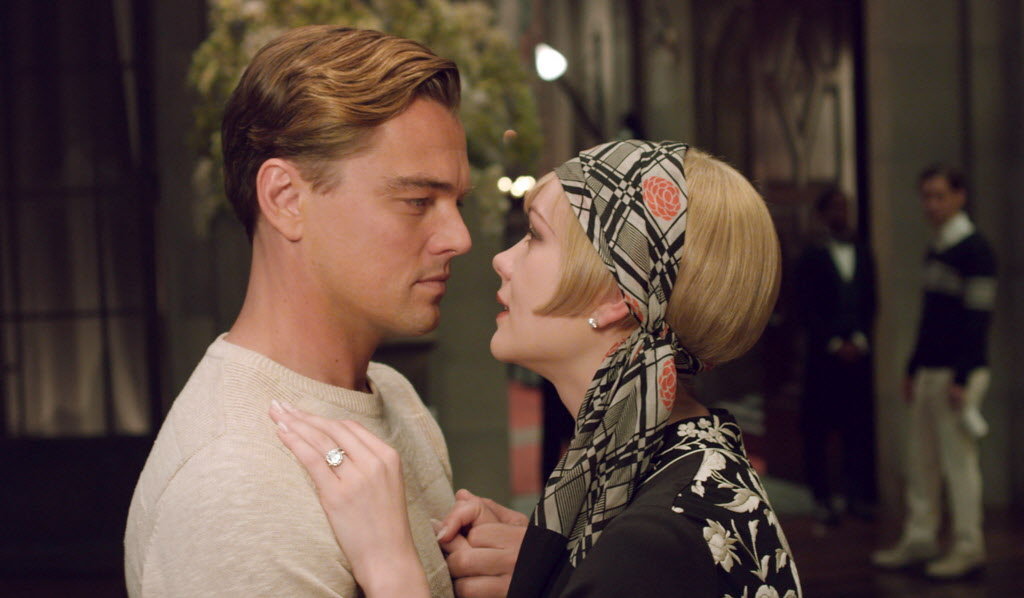
You must be logged in to post a comment.